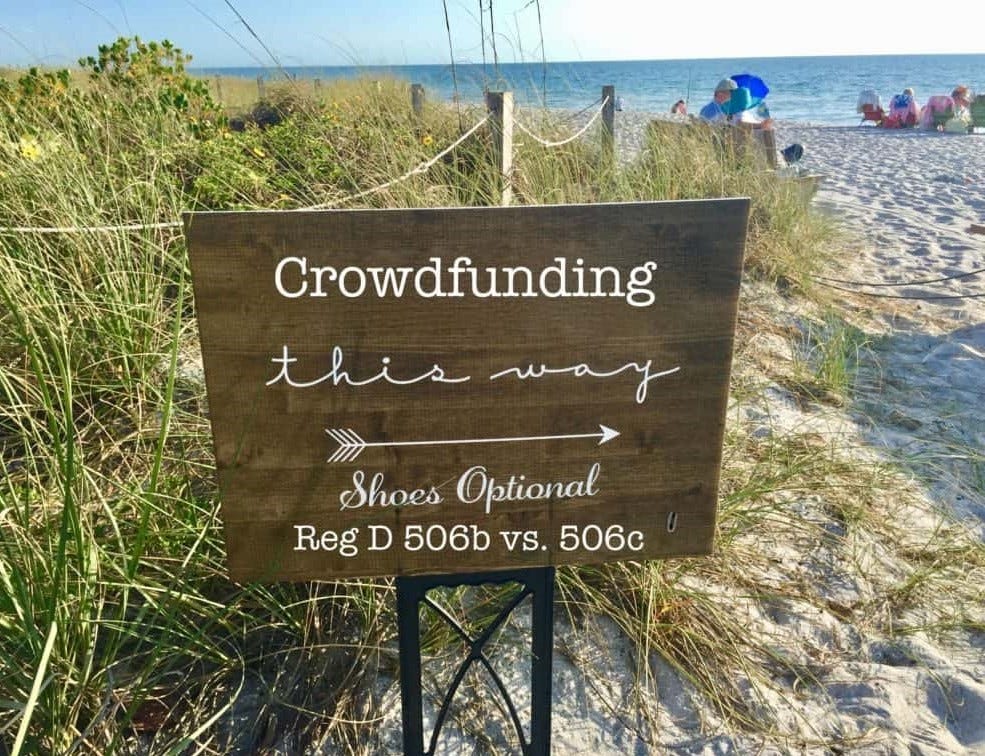From Regulation A+ to Regulation CF, it can quickly become confusing and difficult to understand the limitations and potential for each.
Starting with the basics, there are three types of crowdfunding where people invest their money into a private company in exchange for equity in the company (shares).
#1. Regulation A+ Offering
Tier 1 Raise -You can raise up to $20 million in a 12 month period. These funds can be raised from both ordinary and accredited investors and must meet the the Blue Sky investing regulations of each state that an investor resides in.Tier 2 Raise- You can raise up to $75 million in a 12 month period. These funds can come from ordinary or accredited investors. Although it is not required to abide by state-by-state regulations as a Tier 1 raise, there are costly reporting requirements, including audited financials and post-offering reporting.
Each of these types of A+ offerings allow companies to undergo a “test the waters” period to gauge the demand of investors where investors can submit non-binding indications of interest. You can publicize the test the waters offering via your social media channels and other methods.
#2. Regulation D Offering
Reg D offerings are the standard form of raising money that existed before the Jobs Act rules were put into effect as the traditional raise money for a startup.
When people in the industry cite Regulation D, they are referring to rule 506(b) and 506(c).
Reg D Rule 506 (b)- Allows you to raise as much money as you’d like from Accredited Investors and up to 35 regular folk (non-accredited). Investors don’t have to verify their accredited status. You cannot advertise the offering publicly.
Reg D Rule 506 (c) - Allows you to raise as much money as you’d like from Accredited Investors and you must verify that each investor is accredited before allowing them to participate. You’re allowed to advertise that you’re raising capital under Rule 506(c) also referred to as “general solicitation.”
In Summary:
Can raise as much capital as you’d like from Accredited investors and up to 35 non-accredited investors.
Under 506(c) you’ll be able to advertise the offering
Under 506(c) you must verify accredited investor status
#3. Regulation CF Offering
The most popular types of Equity Crowdfunding is Reg CF. Up until March 15 the most you could raise under a Reg CF was $1,070,000. Regulations have taken place that now allows companies to raise up to $5 million under a Reg CF offering in a 12 month period from ordinary investors. There are also limits in terms of how much an individual can invest. Because of the popularity and recent changes to Reg CF, I am going to spend more time explaining the requirements, expectations, and benefits.
As with any regulation crowdfunding, you must disclose information about the company like offers and directors, how the funding will be used, the fundraising period, and more.
The reporting requirements will vary depending on the amount of funding that you are seeking.
Up to $107,000- Financial statements and tax returns.Up to $1,070,000- CPA financial review.$1,070,000+- An official financial audit.
Companies also have ongoing reporting requirements in the form of annual reports. Not every company is allowed to participate in a Reg CF offering. Some of the things that could disqualify you:
Non-U.S. companies.
Companies that have failed to comply with the annual reporting requirements.
Companies that have no specific business plan or plan to engage in a merger or acquisition with an unidentified company or companies.
Filing a Form C is a requirement for any company looking to raise capital by equity crowdfunding through Regulation CF and must be filed before taking any money out that has been raised via your Reg CF offering.
Which one is right for your company begins with how much you are looking to raise.
Other factors to consider when choosing the type of offering are the costs of a financial audit, the tome it takes to do financial reviews, what stage is your company at with revenue, previous raises and more.
“Angels and VCs bring expertise but the crowd brings customers and fans. “ - Naval Ravikant, founder of AngelList






